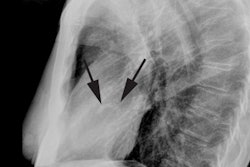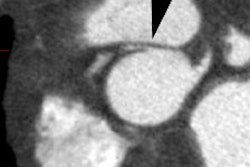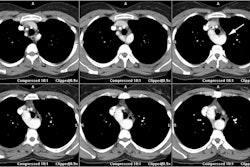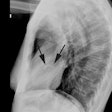Rheumatic Fever/Rheumatic heart disease:
View cases of rheumatic fever
Clinical:
Rheumatic fever is a systemic inflammatory disease secondary to an autoimmune response to a group A beta-hemolytic strep infection. This immune response affects the endo, myo, and pericardium in 1-3% of cases after only one episode of infection. Most patients are initially affected between the ages of 5 to 15 years and often present with nothing more than a sore throat. Chronic rheumatic valve disease manifests clinically after a latency period of 20-25 years [2]. Rheumatic valvular destruction results in the development of sterile vegetations which erode the valve closure tendinae and chordae. The valve cusps become fibrotic, short, and fused which results in stenosis and regurgitation. Isolated mitral valve involvement is found in 50% of cases, while the aortic and mitral valve are both involved in the remaining 50%. The tricuspid valve is only occasionally involved, and isolated aortic valve involvement is uncommon. Pulmonic valve involvement is rare.(1) Radiologic Clinics of North America 1999; Lipton MJ, Coulden R. Valvular heart disease. 37(2): 319-339
(2) Radiographics 2009; Chen JJ, et al. CT angiography of the cardiac valves: normal, diseased, and postoperative appearances. 29: 1393-1412






